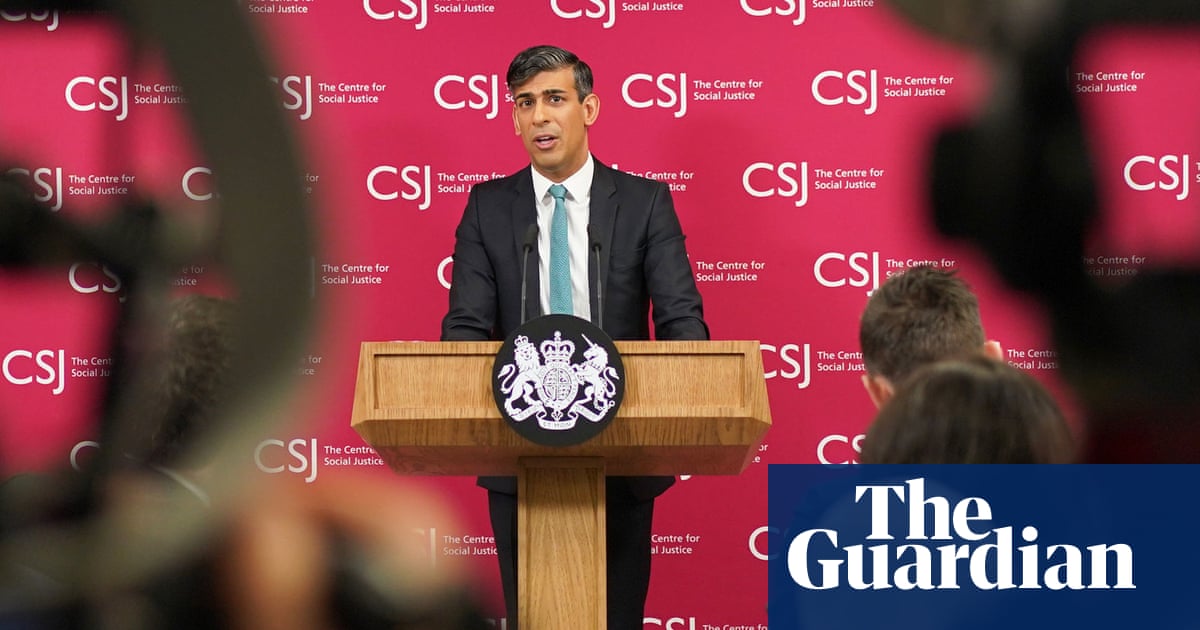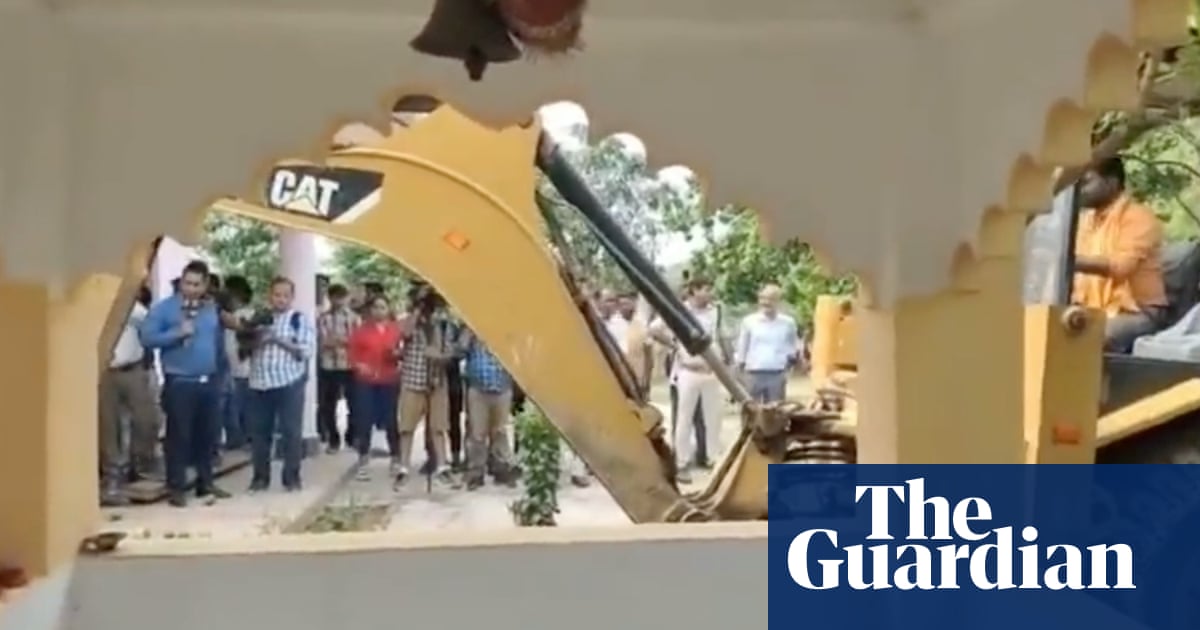
A campaigner against the HS2 rail line whose head and back were knelt on by police after he says he was thrown to the ground during a peaceful protest believes he was singled out because he is black. He has lodged a complaint of assault amid rising calls for UK government action on the policing of environmental protests.
Video footage shows William Harewood, the only person of colour in a small group of activists at a bypass in Wendover, Buckinghamshire, offering no resistance as he is held face down by Thames Valley police officers, two of whom kneel on his head and upper back while two others pin his legs down with their knees.
“We were trying to give food to people in lock-ons [devices protesters use to attach themselves to trees or buildings], and as I leaned forward to pick up a cup they threw me down,” said Harewood, who is in his 30s and claimed that on that occasion in August he was picked out because of his race, but added that activists of all backgrounds were assaulted during HS2 protests.
Harewood spoke last week from 20 metres up a tree at Jones Hill wood, south of Wendover, where activists were locked in a standoff with police and bailiffs trying to evict them from makeshift treehouses. By Thursday evening, Thames Valley police climbers had cleared the site and arrested nine activists, including him.
The ancient woodland, home to badgers and bats and known as “Roald Dahl wood” because it inspired the author’s much-loved stories, including Fantastic Mr Fox, is the latest frontline in a battle between environmental activists and police and private security firms. Activists say their lives are being put at risk.
The policing of environmental protests in the UK is the subject of a new report sent to UN rapporteurs on the environment and human rights and shown exclusively to the Observer. It includes dozens of interviews and alleges 400 incidents of police using unwarranted aggressive behaviour to deter protesters against shale fracking and the HS2 rail line. The report concludes that around 10% of allegations might constitute actual bodily harm.
The report, by Global Diligence LLP, was commissioned by campaign group Not1More and looks into how the UK complies with the International Covenant on Civil and Political Rights. It claims British police have systematically violated protesters’ rights under international law, and targeted individuals based on gender and disability.
“A pattern of behaviour by the police in suppressing environmental protests across the UK through unnecessary and disproportionate violence, intimidation and judicial harassment appears to be indicative of a state policy to deter people from exercising their fundamental freedoms of assembly and expression,” says the report. It add that the strategy has a “chilling effect” on protesters and calls on the UN to investigate.
Most allegations from HS2 activists cite incidents involving National Eviction Team (NET) bailiffs who – often in the presence of police – are sent to remove “tree protectors” in some of the 108 ancient woods that will be cleared along the HS2 route.
On Thursday, it was reported that four NET workers were suspended after allegations of a serious assault on activists in Leamington on 4 October. An HS2 spokesperson said: “We are aware of this incident. It does not involve HS2 Ltd staff.” NET was approached for comment but did not respond.
Campaigners said few of the complaints were ever followed up. Namiah Rudd claimed he was knocked unconscious and had his collarbone fractured by a guard from another private security firm on 23 July at the Harvil Road camp near Uxbridge. He said police cited a lack of evidence, even though the guard wore a body camera.
An HS2 spokesperson said: “HS2 workers and high court enforcement officers (HCEOs) have carried out evictions with complete professionalism in the face of extreme intimidation and criminal behaviour. The behaviour of trespassers, many of whom are breaching their bail conditions, is often deceitful, with false claims of assault and misleading claims about the project.”
Sebastian Sandys of HS2 Rebel-lion, which is petitioning parliament to instruct HS2 not to use NET bailiffs or HCEOs against activists, said the biggest concern was the use of private security firms: “Parliament must intervene to stop violence and intimidation by security staff, who are ultimately accountable to the transport secretary.”
Not1More’s report identifies the use of civil injunctions and bail conditions that include exclusion orders as part of a pattern of police using civil courts and the criminal justice system to suppress protest. This includes use of Covid-19 laws, as well as multiple arrests on charges that are immediately dropped.
Thames Valley Police said in a statement: “The footage we are aware of shows officers following the standard procedure used when an individual is resisting arrest. We strongly refute the allegation that our officers placed a knee on the neck of any individual at this protest. Our officers are policing the impact of the building of the HS2 railway without favour. We will continue to work to deliver public safety for all. At the same time, we will facilitate peaceful protest and also HS2’s rights to conduct lawful business.”












